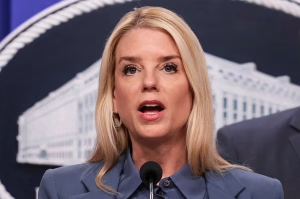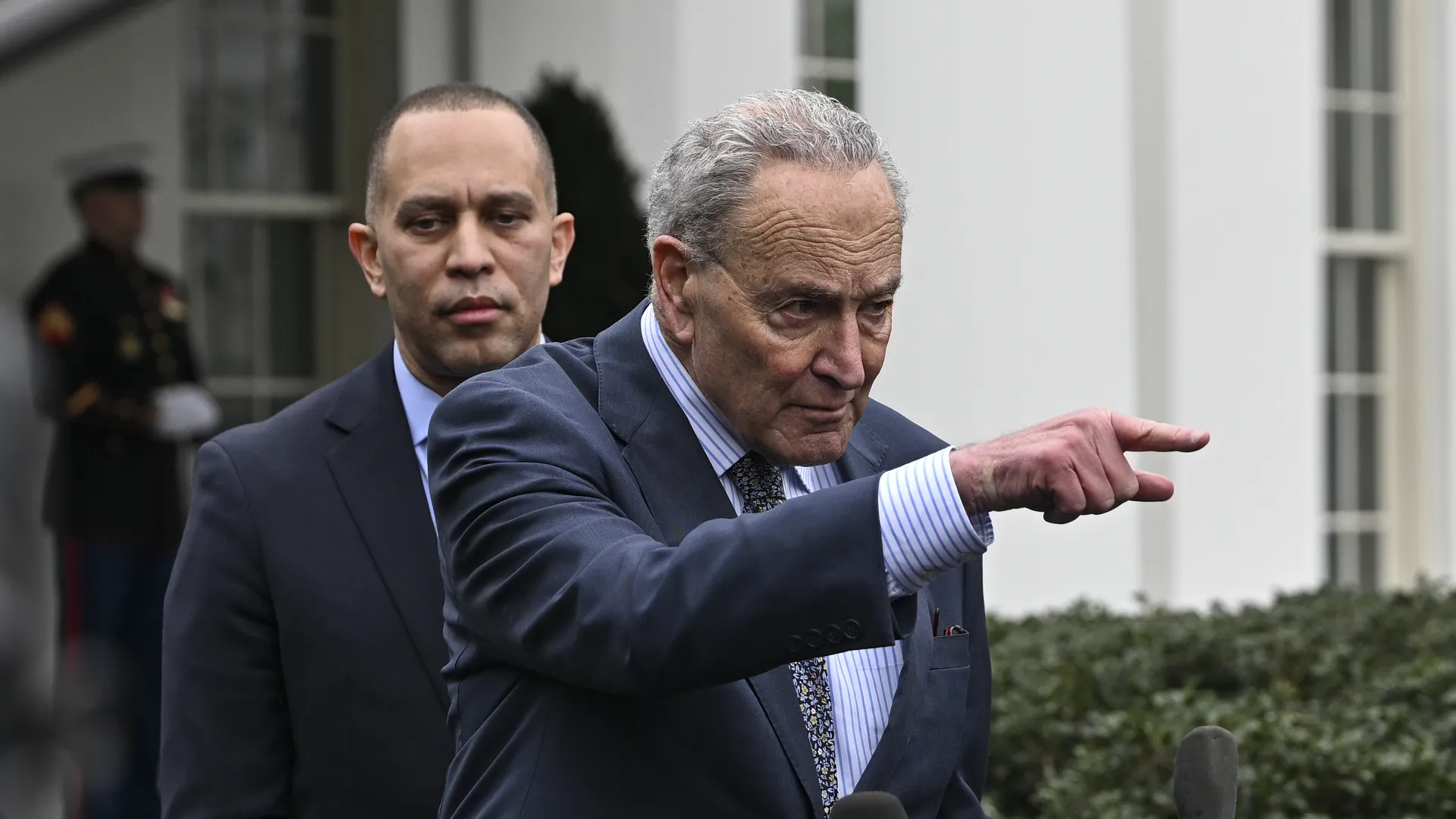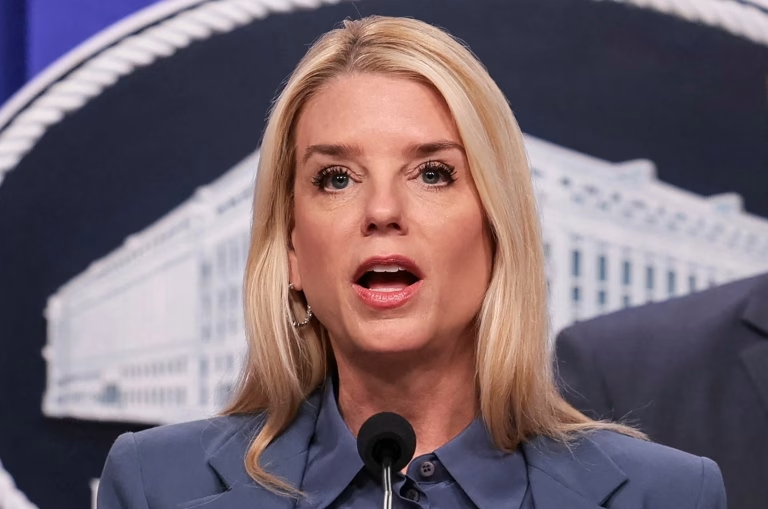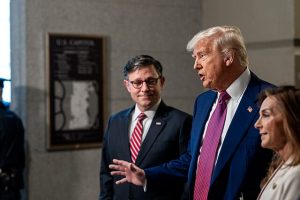On Thursday, a public appeal was made for Congress to end the ongoing federal government shutdown, stressing the urgent need to protect working families, maintain essential services, and ensure operational continuity across critical sectors such as aviation. The appeal came during an event outside the West Wing of the White House, where top officials joined in urging lawmakers to pass a clean continuing resolution to reopen the government. The message emphasized that essential government functions should not be held hostage by political disputes and that immediate action is required to prevent further disruption.
The impact of the shutdown is being felt across a broad spectrum of the workforce. Federal employees, contractors, and individuals who rely on government services are facing delays in paychecks, benefits, and operational support. The disruption affects not only households but also industries that rely on stable government operations. From transportation oversight and air traffic management to public health functions, the pause in funding has created tangible economic and logistical challenges that cannot be ignored.
During the event, officials highlighted the immediate consequences for families. With paychecks delayed, parents must make difficult choices regarding mortgages, tuition, and basic living expenses. Children may be forced to forego extracurricular activities, sports, or other programs because of financial strain. Beyond personal finances, the shutdown has created uncertainty for contractors and private-sector employees whose work depends on government stability. Observers have noted that the ripple effect extends into local communities, affecting businesses, service providers, and educational institutions.
The call for a clean continuing resolution underscores a distinction between short-term operational necessity and long-term policy debates. Advocates urged that the government be reopened immediately to ensure stability, while acknowledging that substantive negotiations on funding priorities, legislative provisions, or broader policy issues can continue once government operations resume. The emphasis was on separating the well-being of workers and families from partisan political strategy.
Midway through the discussion, Sean O’Brien, President of the International Brotherhood of Teamsters, addressed the crowd. Representing a union of approximately 1.4 million members, O’Brien stressed the human consequences of prolonged inaction. “Pass a clean continuing resolution, get to the table, negotiate a deal. Do not put working people in the middle of a problem. They should not be in there,” he said. O’Brien highlighted stories of families grappling with financial uncertainty, illustrating the personal toll of delayed pay and halted government operations.
O’Brien also described the strain on critical infrastructure, noting that certain federal functions, particularly in aviation and transportation, are operating under increased pressure. Staffing shortages, delayed operations, and limited oversight create potential risks not only for workers but also for public safety. He argued that immediate funding is essential to prevent further strain on these services and to maintain confidence in government institutions.
The union leader’s remarks represent a broader trend of labor organizations advocating independently of traditional party alignment. O’Brien, who has publicly criticized both major political parties for failing to advance meaningful labor reform, emphasized that protecting worker paychecks and essential services transcends partisan politics. His message was clear: the shutdown is not a theoretical political contest but a real-world crisis affecting millions of Americans.
O’Brien noted that previous attempts to reach bipartisan agreement have often been complicated by partisan maneuvering, leaving working families caught in the middle. He encouraged lawmakers to prioritize practical solutions over political leverage. “Let’s not compromise the safety or the livelihoods of working people. Pass a clean CR,” he said, framing the appeal as both an operational and moral imperative.
Observers have highlighted the significance of the event in the context of current labor and political dynamics. Traditionally, labor unions have aligned with the Democratic Party, but O’Brien’s willingness to engage with administration officials and publicize his concerns independently signals a shift toward a more strategic, issue-focused approach. The collaboration with executive branch representatives during the public appeal underscores a shared recognition of the urgency to protect workers and restore government functionality.
The practical implications of a continued shutdown are extensive. Federal employees face uncertainty regarding their ability to meet financial obligations, while contractors and industries dependent on government funding experience delays and operational interruptions. Public services, particularly those requiring continuous oversight such as transportation and safety monitoring, are stretched thin. The economic effects extend beyond government operations to the broader market, affecting businesses, educational institutions, and local communities.
The appeal for a clean continuing resolution also carries strategic significance. By emphasizing the separation of immediate operational needs from long-term policy disputes, the message highlights a pragmatic path forward. Lawmakers are encouraged to restore essential government functions now, allowing substantive negotiations to occur without further endangering workers and services. This approach frames the shutdown as a solvable logistical problem rather than a protracted political stalemate.
O’Brien’s leadership illustrates a modern approach to union advocacy, emphasizing independence, strategic engagement, and a focus on tangible outcomes for members. Since assuming the presidency of the Teamsters, he has demonstrated a willingness to break with traditional alliances, prioritizing workers’ well-being and operational stability over partisan loyalty. His public statements reflect a broader trend in organized labor toward proactive participation in national policy discussions, particularly when fundamental worker interests are at stake.
The urgency of the current shutdown cannot be overstated. Delays in federal funding have resulted in paused benefits programs, disrupted public services, and economic uncertainty for a wide range of stakeholders. The public appeal underscored the critical need to restore government functionality while highlighting the real human consequences of inaction. By framing the issue in terms of families, workers, and communities, the message reinforced the argument that political disputes should not take precedence over public welfare and operational stability.
In conclusion, the call for a clean continuing resolution presents a clear, practical path forward amid the federal government shutdown. By reopening government operations immediately, lawmakers can protect the livelihoods of millions of Americans, restore critical services, and reduce operational risks across essential industries. Once funding is restored, substantive policy debates and long-term negotiations can continue without placing undue hardship on workers and families.
The public appeal serves as a reminder that government dysfunction has tangible consequences and that the well-being of working Americans must remain a central consideration in political decision-making. Immediate action is required to stabilize the workforce, ensure the safety and reliability of public services, and maintain confidence in government institutions. By emphasizing practical solutions over partisan positioning, the message highlights both the urgency and the feasibility of resolving the shutdown promptly.
Ultimately, the shutdown presents a clear test of governance, highlighting the intersection of policy, labor, and public welfare. The appeal underscores the principle that operational continuity, worker security, and public safety must take precedence over protracted political maneuvering. Restoring funding, protecting livelihoods, and resuming government functions is not only a practical necessity but also a moral imperative for those entrusted with public service.

Emily Johnson is a critically acclaimed essayist and novelist known for her thought-provoking works centered on feminism, women’s rights, and modern relationships. Born and raised in Portland, Oregon, Emily grew up with a deep love of books, often spending her afternoons at her local library. She went on to study literature and gender studies at UCLA, where she became deeply involved in activism and began publishing essays in campus journals. Her debut essay collection, Voices Unbound, struck a chord with readers nationwide for its fearless exploration of gender dynamics, identity, and the challenges faced by women in contemporary society. Emily later transitioned into fiction, writing novels that balance compelling storytelling with social commentary. Her protagonists are often strong, multidimensional women navigating love, ambition, and the struggles of everyday life, making her a favorite among readers who crave authentic, relatable narratives. Critics praise her ability to merge personal intimacy with universal themes. Off the page, Emily is an advocate for women in publishing, leading workshops that encourage young female writers to embrace their voices. She lives in Seattle with her partner and two rescue cats, where she continues to write, teach, and inspire a new generation of storytellers.









